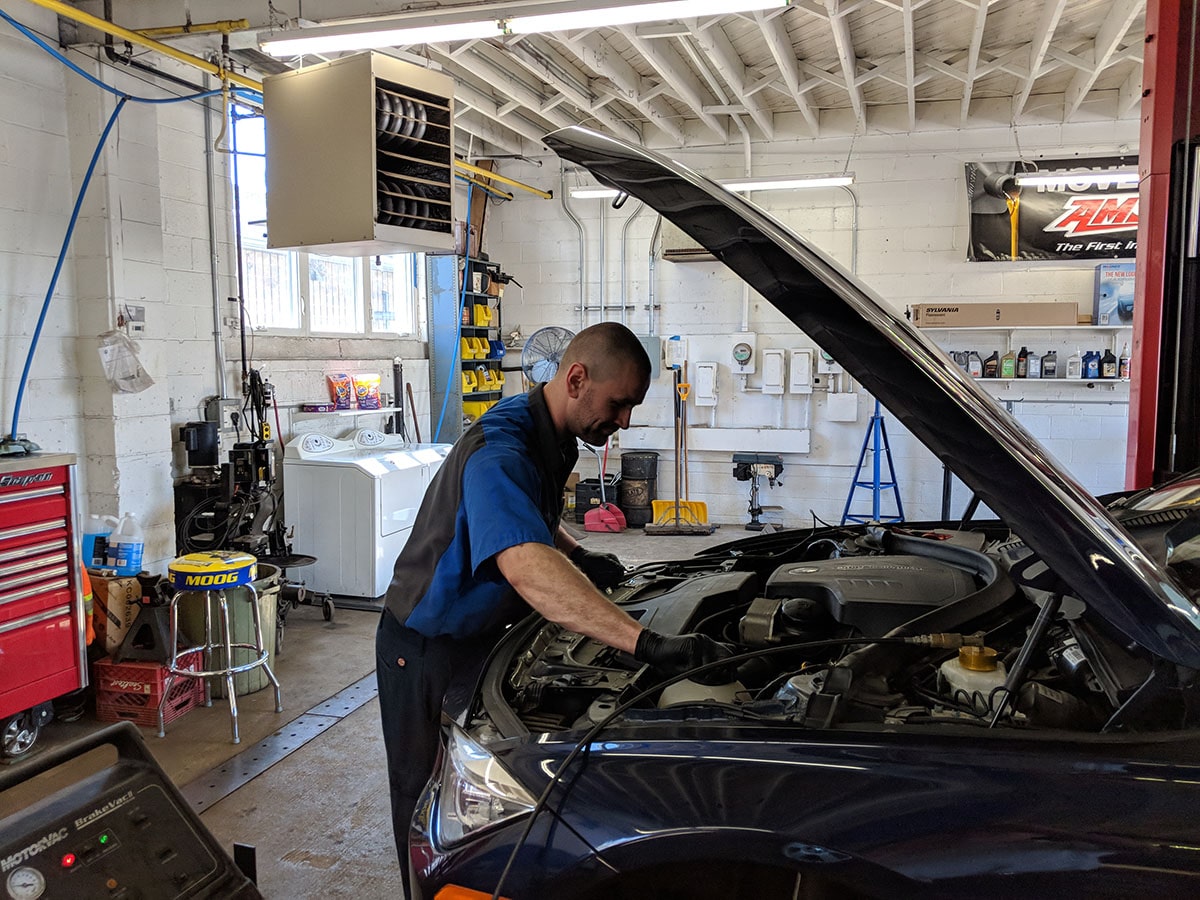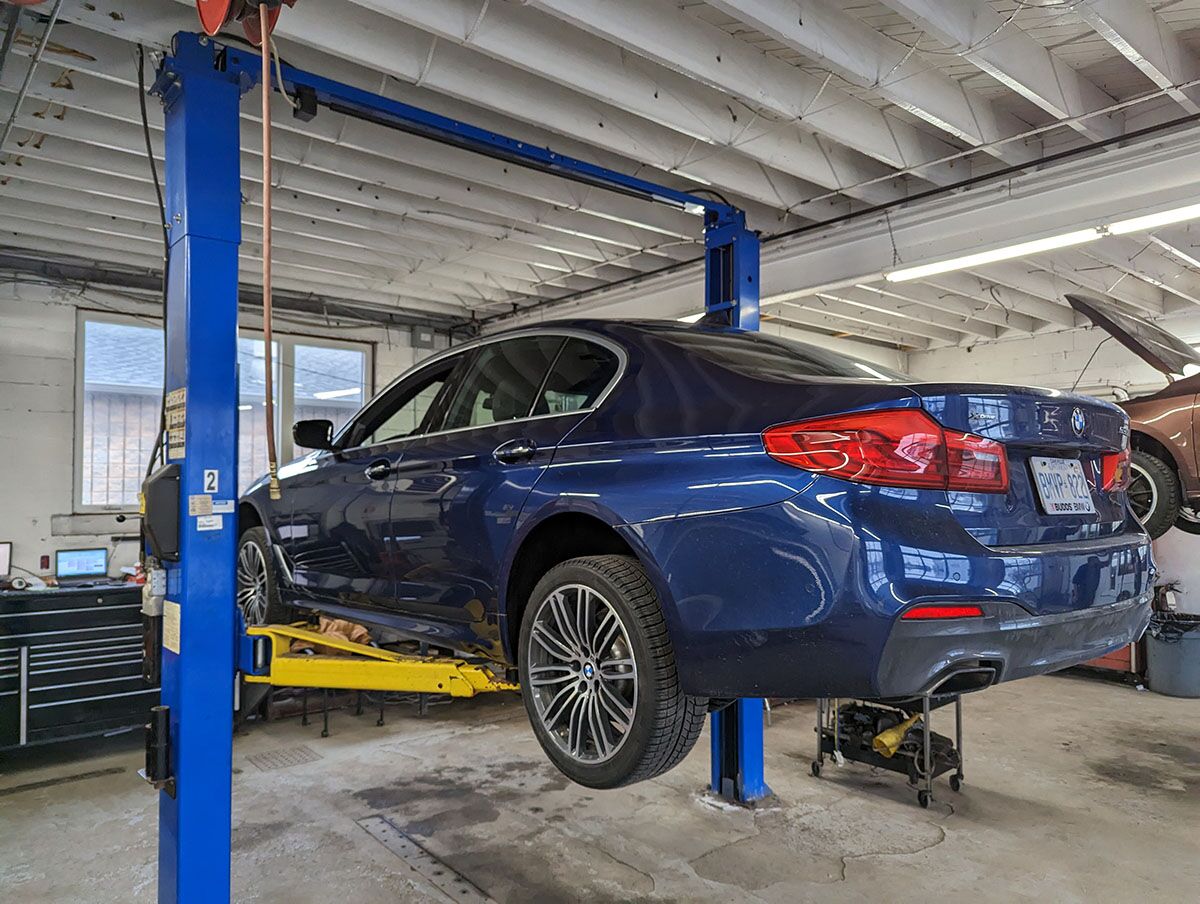Regular vehicle inspections help identify potential issues before they become major problems, ensuring that your vehicle remains reliable on the road — here in Burlington or wherever your travels take you.
A well-maintained vehicle is integral for your safety and the efficient operation of your car. In Ontario, vehicle inspections are a prerequisite for obtaining a Safety Standards Certificate (SSC). If you are a private vehicle owner, an SSC is required in one of four scenarios:
- Transfer of ownership of a used vehicle
- Registering a vehicle from out-of-province
- Registering a rebuilt vehicle
- Changing the status of a vehicle from "unfit" to "fit"
The Auto Station's Digital Vehicle Inspections (DVI) allow customers to see exactly what our mechanics and technicians see — with video presentations, photos, and reports delivered directly to you via text or email. No surprises, just exceptional service!
Components of a Professional Vehicle Inspection
Our comprehensive vehicle inspection services help detect potential problems early, allowing for timely repairs. Points of emphasis include:
Powertrain
- Engine and Transmission: Check for any leaks, unusual noises, and proper operation.
- Drive Shafts and Axles: Ensure they are not damaged or excessively worn.
- Mounts: Verify that engine and transmission mounts are secure and not deteriorated.
Suspension
- Shock Absorbers and Struts: Inspect for leaks, damage, and proper function.
- Springs: Check for cracks, breaks, or sagging.
- Bushings and Joints: Ensure they are not excessively worn or damaged.
Brake Systems
- Brake Pads and Shoes: Check for adequate thickness and wear.
- Rotors and Drums: Inspect for excessive wear, cracks, or warping.
- Hydraulic System: Ensure there are no leaks and that the brake fluid is at the proper level.
- Parking Brake: Verify that it holds the vehicle securely.
Steering
- Steering Wheel and Column: Check for excessive play and proper operation.
- Linkages and Joints: Ensure they are not excessively worn or damaged.
- Power Steering System: Inspect for leaks and proper fluid levels.
Instruments and Auxiliary Equipment
- Gauges and Indicators: Ensure all are functioning correctly, including speedometer, fuel gauge, and warning lights.
- Windshield Wipers and Washers: Verify they are operational and in good condition.
- Horn: Ensure it is working properly.
Lamps
- Headlights: Check for proper operation and alignment.
- Taillights, Brake Lights, and Turn Signals: Ensure all are functioning correctly.
- License Plate Light: Verify it is operational.
Electrical System
- Battery: Check for secure mounting and no corrosion on terminals.
- Wiring: Inspect for any frayed or exposed wires.
- Fuses and Relays: Ensure they are in good condition and properly rated.
Body
- Frame and Chassis: Check for rust, cracks, or other structural damage.
- Doors, Hood, and Trunk: Ensure they open and close properly and are securely latched.
- Mirrors and Glass: Verify they are not cracked or broken and provide clear visibility.
Tires and Wheels
- Tire Tread Depth: Ensure it meets the minimum legal requirement.
- Tire Condition: Check for cuts, bulges, or other damage.
- Wheel Alignment and Balance: Verify proper alignment and balance to prevent uneven wear.
Routine Maintenance Best Practices
Automobiles are complex machines with many potential fail points. However, with a little upfront effort and vigilance, you can help prevent major issues and extend your vehicle's lifespan.
- Regularly Check Fluid Levels
Ensure that your engine oil, brake fluid, coolant, and windshield washer fluid are at the appropriate levels.
- Monitor Tire Pressure
Check your tire pressure monthly and before long trips to ensure optimal performance and fuel efficiency.
- Inspect Lights
Regularly check that all your vehicle’s lights are functioning correctly, including headlights, brake lights, and turn signals.


- Listen for Unusual Noises
Be wary of any unusual sounds when driving, as these can be early indicators of potential issues.
- Trust Your Gut
Spongy or unresponsive brakes? Does your vehicle favor one side or another? If you notice something "off" about your driving experience, it's a good sign to schedule an inspection. - Don't Ignore Warning Lights and Indicators
Don't neglect that "Check Engine" or "Oil Pressure" warning on your vehicle's dashboard — they're there to help us uncover issues that my not be immediately apparent. - Regularly Wash and Wax
Prevent damaging rust and protect your paint by remembering to give your car a bath!
Routine Maintenance Schedule and Cost
Oil Changes
⇒ Every 5,000 to 7,500 km
⇒ $50 - $100
Brake Inspections
⇒ Every 6 months or 10,000 km
⇒ Included with scheduled maintenance at The Auto Station
Tire Rotations
⇒ Every 10,000 km
⇒ Included with scheduled maintenance at The Auto Station
Fluid Flushes
⇒ Every 2 years or 40,000 km
⇒ $100 - $150
Replace Cabin Air Filter
⇒ Every 24,000 to 48,000 km
⇒ $40 - $95
Replace Engine Air Filter
⇒ Every 1-2 years, or 20,000 km
⇒ $30-$115
Replace Spark Plugs
⇒ Every 5 Years, or 50,000-130,000 km
⇒ $135-$675 (depending on engine complexity)
Comprehensive Inspections
⇒ Annually
⇒ $100 - $200
Why Choose The Auto Station for Vehicle Inspections?
With extensive knowledge of all vehicle systems — including engines, transmissions, brakes, and HVAC systems — our highly trained team stays updated with the latest advancements in automotive technology to provide the best quality care possible.
We use state-of-the-art diagnostic tools and equipment to perform thorough inspections and accurate diagnostics, reducing downtime and ensuring high-quality repairs and maintenance that exceed industry standards.
Our Digital Vehicle Inspections allow us to share our findings with you directly through recap videos, photos, and reports — conveniently delivered via text or email. Customer education is important to us!
Choose The Auto Station for your vehicle inspection and experience exceptional service from a team of dedicated professionals.
What Our Customers Are Saying
Inspection FAQ
How does a digital vehicle inspection differ from a traditional inspection?
A digital vehicle inspection (DVI) provides a detailed report with photos and videos, allowing you to see exactly what the mechanic sees. This helps you better understand the condition of your vehicle and any recommended repairs.
What should I bring with me for a vehicle inspection?
How do I know if my vehicle needs more frequent inspections?
Are there any inspection services specifically for electric or hybrid vehicles?
What is the process for scheduling a vehicle inspection?
How do regular inspections affect my vehicle's resale value?
What are the most common issues found during vehicle inspections?
Do you offer shuttle services or loaner vehicles while my car is in for service?

